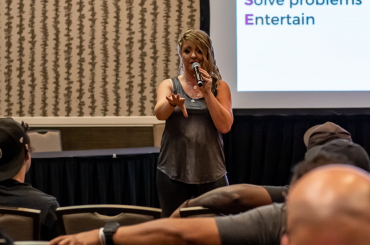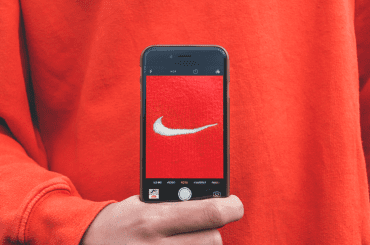K.C. Kokoruz says his entire career has been based on networking. In fact, he’s become so well-connected in his Chicago market that his nickname is “Mayor.” And Kokoruz says one of the easiest and simplest ways to network is to be active on social media.
“The first thing I do every morning on Facebook is wish everyone having a birthday, a happy birthday,” says the owner of The Keith Christopher Entertainment Group. “Having been a speaker at trade shows for years, I don’t even personally know some of these people, but I know how I feel on my birthday when I get hundreds of birthday posts.
“After that, I jump on Facebook chat and say hello to industry friends that are online and see how life is, as well as business.”
What are the different forms of networking that DJs are using nowadays? How and why?
Beyond Facebook, Kokoruz says that networking should be a full-time job.
“You can’t be part-time at it,” he says. “You need to religiously spend a dedicated portion of your day interacting with people who you believe can help grow your business, as well as helping others grow their business in the process.
“Networking can’t be fake. You need to genuinely want to have a relationship with another company. If you make it all about what someone can do for you, the other person will see right through you.”
According to Kokoruz, a DJ interested in networking needs to actually want to give, rather than merely get. “In order to get, you need to give,” he explains. “It doesn’t need to even be you yourself doing business with someone—it could be you connecting two people together for the purposes of them doing business together, yet you get the credit. If you have the ability to refer business, you need to do it.”
Kokoruz also suggests having our own preferred vendor list. “If you’re going to network with people to get on their list, you certainly need to be practicing the same thing,” he says. “As a DJ, you may not be able to refer a banquet hall too often, but you sure can refer photographers, florists, invitation companies, local tuxedo companies and other services the bride may need.
“Being a member of NACE, ADJA, ILEA and the Schaumburg Business and the like on a regular basis helps, too.”
Jerry Bazata of Jaz Music & Entertainment in Ogunquit, Maine, will be speaking on this very topic later this August at the DJ Expo in Atlantic City. “Any B2B or B2C event is an opportunity to network and develop new business along with COIs [Centers of Influence] that can direct or drive new revenue for you,” reports Bazata.
“There are five major common mistakes that an enthusiastic and energetic business owner makes when attending a networking event. First, do not measure your success by the number of business cards you collect. This is similar to completing cold calls on other business owners—any contact you make after the event will be viewed as non-productive or spamming for business.
“Secondly, never look over the shoulder of someone you’re engaged in conversation, in the hopes that someone more interesting or important will show up.
“Thirdly, appear to be smarter and more competent than others, so that people will be drawn to you. Don’t be the person talking louder than everyone else in the room.
“Fourth, you shouldn’t assume that anyone standing alone is a loser and should be avoided. Often these are actually hidden connections that you want to develop. They may just be assessing the groups and determining who they want to meet.
“And finally, demonstrate power and influence by talking less and listening more. Business is often lost in translation because we fail to listen for the hints of a prospective opportunity.”
Bazata says that those of us who try to impress strangers with reciting our resumes are actually missing the mark.
“Potential clients are more attracted initially to a person’s warmth, as conveyed by eye contact, a warm expression and a smile—rather than their competence.”
Over on the West Coast, Adam Tiegs in Seattle, says he’s very involved with associations, and that he believes networking is key to completing our long-term relationships and marketing efforts.
“Right now as a solo operator, I still participate in NACE [National Association For Catering and Events], Wedding Network USA and the USDJA [United States Disc Jockey Association],” says the owner of Adam’s DJ Service.
“When I was a multi-op, in order to better fill the calendars for my other DJs, I took part in the local chambers, CVBs, MPI [Meeting Planners International] and ILEA [formerly ISES, but now International Live Events Association] in addition to others like BNI and LeTip.”
Tiegs says he found that the more event-specific a group is, the better the association. “That’s because these are the partners and friends who touch our potential clients before we do,” he explains. “I don’t do trade shows, but all of these folks do—so partner up with them and support them at their open houses.
“But I will say this: You only get out of them what you put in, so don’t just sign up and expect the phone to ring off the hook. Get involved, try to show up to every meeting, and even volunteer on committees or become a board member.
“Show that you actually care and have a genuine interest in what others are doing with their businesses. Make an effort to meet these other members outside of the meeting/event environment. Develop and maintain relationships with people you like working with and places you’d like to do more events at.
“I assure you, it’ll pay off in the long run.”
Back over in the Midwest, Corey Rusch in Detroit says that his area of the country is pretty unique.
“I don’t know the exact numbers but we would have to have a decent share of the market, so we don’t get asked to network much with other entertainment companies in the area,” says the founder and owner of Rusch Entertainment. “We network a little bit at chamber events, community events, wedding expos and with vendors at weddings and other events. We basically just hope that if we do a good job and that the vendors enjoy working with us, they’ll refer us in the future and we’ll do the same thing.
“There are a lot of companies that are trying to do it all now—like DJing, photography, videography, lighting, catering, limo, cake-baking etc.
“We could get into all that, but we could also potentially hurt all the other companies around that currently refer us, so we’ve decided to stick with one element, and do that to the best of our ability.
“Referrals from other professionals are also extremely valuable. I think each DJ would be different with the percentages of gigs based on referrals, but it would depend on how strong your referrals are.”
Meanwhile, back up in the northeast, Artem Lomez in Roxbury, N.J., says networking is imperative for anyone in the DJ business, just as it is in any industry.
“One-hundred percent of my business is word-of-mouth, so I highly rely on referrals from past and present clients, as well as marketing,” says the founder and principal event host for NinetyThree Entertainment.
“Internal networking within our industry is important, as it not only builds relationships with your colleagues and helps you understand which are the best ways to learn from—networking also provides learning opportunities, which I believe is an ever-evolving process—plus it also opens the door to collaboration.
“In addition to event entertainers, I also network with videographers, photographers, event planners, etc., as we can all potentially assist in the referral process for one another.”
Lomez says that when clients feel comfortable with our services and opinions, they’re also likely to feel comfortable with our referrals for other professionals.
“This is a great way to also ensure that your events are being handled by the event professionals that we also trust and enjoy working with,” he says. “I utilize industry specific organizations [NJDJN, ILEA, MPI, etc.], as well as local networking organizations, such as my county Chamber of Commerce.
“Networking outside of the industry not only allows for broadening brand awareness, but also plays a part in business and personal growth. Being exposed to businesses and industries that are outside of our typical areas of focus is often a wonderful learning experience.”
Networking, explains Lomez, is as an opportunity to meet new people overall—even if we don’t do business with someone from an organization.
“Networking, much like most things in life, is dictated by effort,” he says. “The more effort we put in, the likely we increase the effectiveness of the results. It should also be noted that we’re in a specialty industry—there’s only so many times someone can get married, have a bar/bat mitzvah, etc.—so, we’re always looking to expand our networks to continue our business growth.
“Based upon the target market you have, adjust your expectation and timelines whenever measuring networking effectiveness.”







